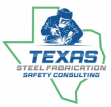I routinely hear companies tell us that their insurance company, or Workers Compensation carrier, is managing all of their OSHA compliance requirements.
This is a very common and dangerous misconception among small manufacturers and other industrial businesses with many health and safety hazards which put their employees in harms way.
I actually have extensive past experience as the owner of an energy contracting business trying to utilize our workers compensation carrier as our primary safety resources. It was a very frustrating experience which finally lead me to understand that this “strategy” is doomed to failure.
The fact is that it is impossible for any workers compensation carrier to manage OSHA compliance for any given policy holder.
Here’s why:
- No Mandate For Compliance: Your insurance company and workers compensation carrier has no legal or other mandate for managing policy holder’s OSHA compliance, period.
- 1 Inspection per Year: They’re only obligated to inspect your company one time per year.
- Inspection recommendations are often “Loss Control” Related, NOT OSHA Compliance Related: Their inspection and report focuses on controlling their own potential losses, not on your company’s OSHA compliance. The report will likely includes some health and safety related findings, but it’s not advisable to assume that the inspection has identified all, or even most of these hazards.
- LacksTime & Resources to Manage Your OSHA Compliance: Your workers compensation “loss control” agent typically has a book of thousands of other clients, and a geographic territory of hundreds or even thousands of square miles, so they literally don’t have the time nor resources to focus on your company. These bandwidth challenges make it impossible to manage any policy holders OSHA compliance.
- Only Offer Generic On-Line Resources: Your carrier only offers generic health and safety resources that don’t necessarily have anything to do with the specific risks and hazards at your company. These generic resources include safety manual and procedure templates, training videos and other generic resources. It is the up to the policy holder to figure out which resources apply to their operations, and then customize them to meet their own operational risks.
- Company Representative Must Utilize & Manage Resources: Someone at your company must then 1) determine which of these generic resources apply to their operations and 2) update and customize them to address the company’s specific health and safety hazards and then try to make use of them. The fact is that very few companies are able to do successfully do this.
Your insurance company and workers compensation cannot manage your OSHA health and safety compliance requirements and companies who assume this put themselves at serious risk for employee injuries and accidents, and huge regulatory fines and penalties.
Click here to learn more about OSHA compliance requirements and how to build and manage a workplace safety training plan
and then ask your loss control agent if they can do all of this on your behalf…..
Call 512-457-0374 Or Click Here To Schedule Your Free Consultation Today
